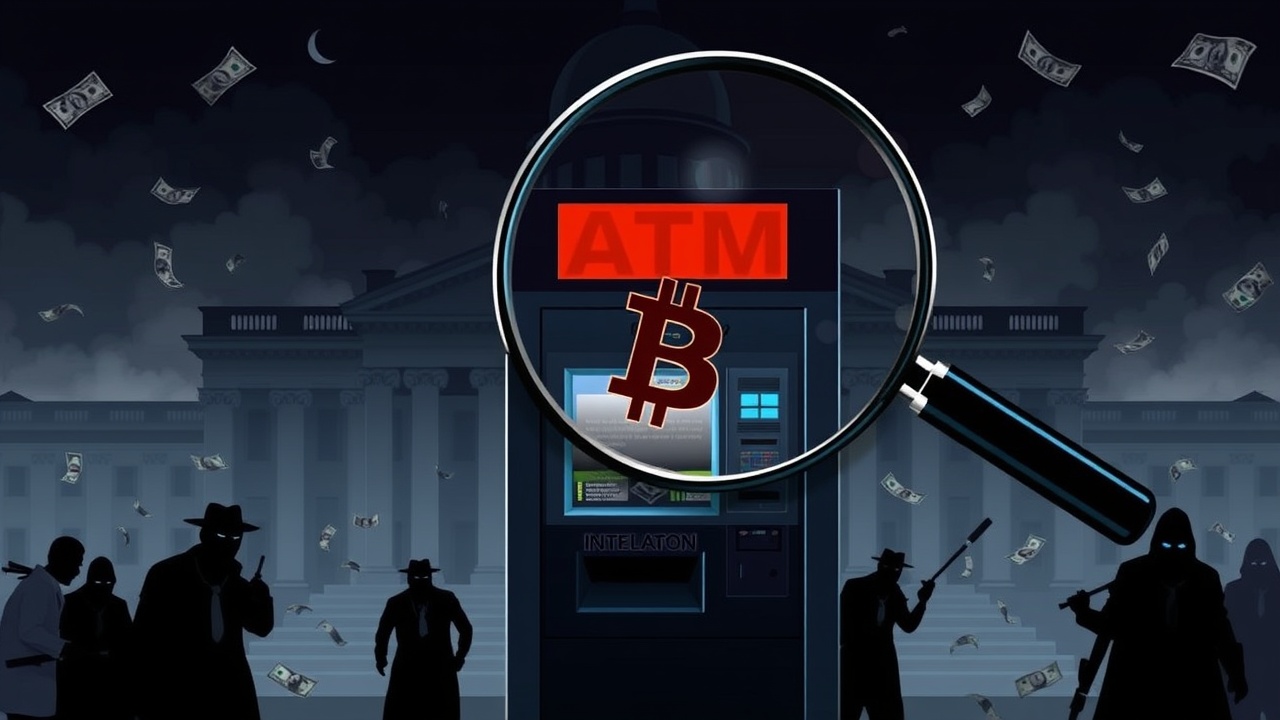Fraudulent Scheme at Bitcoin ATM
A family in Texas recently fell victim to a fraudulent scheme that cost them a staggering $25,000 at a Bitcoin ATM, prompting swift action from law enforcement. In a dramatic attempt to retrieve the cash, detectives used power tools to break into the ATM, ultimately recovering $31,900. While their intentions were commendable, this situation raises concerns about whether punishing small business owners—for the actions of scammers—is an effective approach.
Growing Crackdown on Bitcoin ATMs
This incident highlights a growing crackdown on Bitcoin ATMs in the United States, as municipalities and states take varied approaches to combat the surge in fraud associated with these machines. For instance, Spokane, Washington, has implemented a complete ban on Bitcoin ATMs, while other regions are introducing regulations aimed at curbing fraudulent activity.
In Illinois, new legislation proposes that any transaction converting cash to cryptocurrency through ATMs must record the recipient’s address, a measure intended to aid in tracing criminals, although many savvy scam artists may circumvent this with encryption tools. Conversely, Vermont has enacted a more practical law limiting daily transactions at Bitcoin ATMs to $1,000, significantly reducing potential losses for victims. Nebraska has also instituted a licensing requirement for ATM operators, mandating quarterly transaction reports and capping fees at 18%, which can help safeguard consumers against exorbitant charges.
Alarming Fraud Statistics
The extent of the problem with Bitcoin ATMs is alarming. The Federal Trade Commission (FTC) has classified these machines as a “payment portal for scammers,” noting that losses due to fraud rose dramatically from $12 million in 2020 to an eye-watering $114 million in 2023. The trend has continued into 2024, with estimated losses exceeding $66 million in just the first six months, suggesting another record year for scams. Victims are often targeted through impersonation, with scams citing urgency from government entities or tech support, resulting in a median loss of $10,000—especially affecting individuals over the age of 60.
Legislative Response
In the Senate, lawmakers are pushing to enhance protective measures against fraud in response to these alarming figures. Illinois Senator Dick Durbin is spearheading the Crypto ATM Fraud Prevention Act, which proposes strict guidelines for Bitcoin ATM operations. This includes daily spending limits for new users capped at $2,000, with a higher limit of $10,000 over a two-week period. It also requires operators to engage users in detailed discussions before transactions exceeding $500 and allows for refunds if a police report is filed within 30 days of the fraudulent activity.
With a political landscape changing and Senator Durbin announcing his retirement after years of service, there’s urgency surrounding the passage of this bill before the upcoming midterm elections. There remains skepticism, however, about whether these regulatory measures will effectively curb the rising tide of crypto-related scams as the demand for Bitcoin and its price sees significant fluctuations, particularly when it approaches record highs. As fraudsters continue to exploit this evolving landscape, the protection of the consumer remains a critical focus for lawmakers and communities alike.




